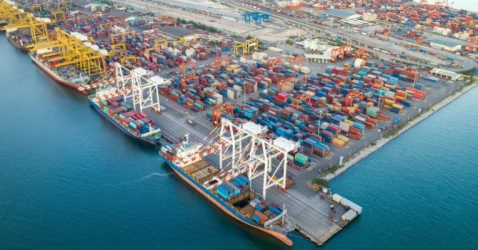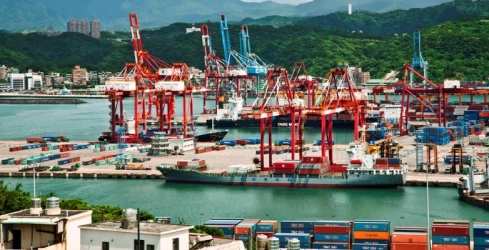Sea transportation of home appliances and furniture from Iran to Spain
Moving internationally can be both exciting and challenging, especially when relocating from Iran to Spain with an entire household’s worth of belongings. Shipping by sea is often the most practical and cost-effective option for transporting large volumes of household goods across continents. This guide provides a detailed look into the process, cost considerations, required documentation, and other factors to help ensure a smooth and efficient experience.
1. Understanding the Sea Freight Process
Sea Freight vs. Other Options:
Shipping by sea is often the preferred choice for long-distance moves as it can handle larger loads and is generally more economical compared to air freight. While sea freight has a longer transit time, the flexibility of container sizes and shipping options can significantly reduce costs.
Container Options:
Two main options are available for sea freight:
- Full Container Load (FCL): An entire container (usually 20 or 40 feet) is dedicated solely to your belongings. FCL is ideal for a full household move, providing privacy and security.
- Less than Container Load (LCL): You share a container with other shipments, which is a good option if you have a smaller volume of belongings.
2. Costs and Budgeting
The cost of sea freight from Iran to Spain varies depending on factors like the volume of goods, container size, service provider, and destination port in Spain. Additional charges may include:
- Shipping fees: Charged based on container size and distance.
- Packing and crating fees: For securing items, especially fragile ones.
- Customs duties and taxes: Spain has specific regulations for imported household goods.
- Insurance: Coverage against potential loss or damage is highly recommended.
To obtain accurate estimates, contact several international moving and freight companies to compare quotes. Typically, it takes about 4-6 weeks for sea shipments to arrive in Spain from Iran.
3. Documentation Required
Documentation is critical for smooth customs clearance. The main documents you’ll need include:
- Passport copy: Proof of identity for the owner of the belongings.
- Packing list or inventory: A detailed list of all shipped items.
- Bill of lading (BOL): Issued by the shipping company, the BOL serves as proof of shipment.
- Proof of residency in Spain: This could be a visa, work permit, or proof of address.
- Other permits or documents: Depending on your specific shipment, additional permits might be required for restricted items.
4. Customs Regulations and Restricted Items
Spain has specific customs regulations, especially for certain items:
- Duty-free eligibility: Household items and personal effects can be imported duty-free if they are over six months old and you are relocating to Spain permanently.
- Restricted and prohibited items: Some items may be restricted or prohibited. Firearms, certain electronic devices, perishables, and plants often require additional clearance or are entirely prohibited. It’s advisable to consult Spanish customs regulations for details.
5. Packing and Preparation
Efficient packing helps protect your items and simplifies the customs process. Tips for packing include:
- Use durable boxes and secure packaging materials to prevent damage during transit.
- Label boxes clearly to simplify the unpacking and inventory check in Spain.
- Consider professional packers if you have fragile or high-value items. They can also provide a comprehensive packing list, which helps with customs.
6. Selecting a Shipping Company
Choosing the right international shipping company is key to a successful move. Look for a company that:
- Offers comprehensive services, including door-to-door delivery, insurance, and customs assistance.
- Has experience with Iran-to-Spain relocations and is knowledgeable about the customs regulations in both countries.
- Provides tracking so you can monitor the shipment's progress.
7. Customs Clearance in Spain
Upon arrival, your goods will go through customs in Spain. A customs agent will inspect your documentation and verify that the contents match your inventory. Typically, customs clearance for household goods is straightforward if all paperwork is in order. Working with a customs broker or a moving company that handles customs can help you avoid delays.
8. Delivery and Final Setup in Spain
Once your goods clear customs, you have two options:
- Door-to-door delivery: The shipping company delivers your belongings to your new home.
- Pickup from the port: You arrange transport from the port to your residence. This option is generally cheaper but requires additional logistical arrangements.
9. Insurance Coverage
While most international moving companies provide basic insurance, it’s advisable to opt for comprehensive insurance for added security. This coverage protects you from financial loss in case of accidents, damage, or loss during transit.
10. Timeline for Shipping
Typically, a sea shipment from Iran to Spain takes 4-6 weeks, although this can vary depending on the route and specific ports involved. It’s wise to allow some flexibility in your moving plans to account for potential delays at sea or during customs clearance.
Conclusion
Shipping household goods from Iran to Spain can be a complex process, but careful planning and choosing the right service providers can make it significantly smoother. By understanding the sea freight process, budgeting for costs, and preparing the necessary documentation, you can ensure that your belongings arrive in Spain securely and in good condition.
For a successful international move, reach out to reputable moving companies specializing in international shipments, and don’t hesitate to get professional help for customs clearance if needed. With the right approach, you’ll be able to start your new life in Spain with all the comforts of home.
If you have any specific questions or need further assistance, feel free to ask!











